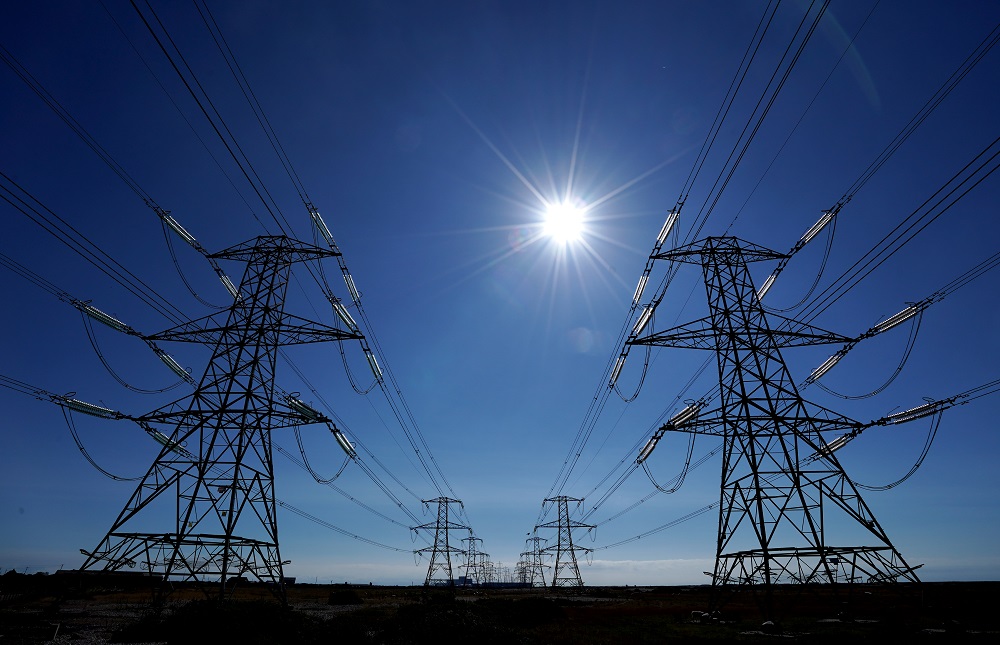Lower risk of power cuts this winter than last, says grid operator

Britain is less likely to lose power this winter than last year, according to the public body responsible for keeping the lights on.
The National Electricity System Operator (Neso) said on Tuesday that it expects power plants, wind farms and other generation methods to be able to provide more than enough power to meet demand.
In its winter outlook, Neso said the grid would have an average margin – the difference between supply of electricity and demand for it – of 5.2 gigawatts (GW) this coming winter, higher than 4.4 GW last year.
Improved capacity
The increased margins are in part because of improved capacity, thanks to a new 765km high-voltage cable that connects the UK’s electricity network with Denmark.
The cable, called an interconnector, is known as the Viking Link, and started transporting wind power between the two countries in December 2023.
Britain also has more battery storage capacity than this time last year, and more generation capacity connected to the grid.
Those factors “more than offset” closures of some power plants including the UK’s last coal-fired plant at Ratcliffe-on-Soar, Neso said.
Net importer
The public body added that Britain will be a net importer of electricity from mainland Europe this year, and that it would use “close cooperation” between European system operators to secure the power supply.
Craig Dyke, director of system operations at Neso, said the grid may still see “tight days,” but that Neso would use tools such as system notices to navigate them.
System notices are a routine practice. They happen when the operator cannot match supply and demand through the normal mechanisms, and sends a formal message to the electricity market to let companies know what it needs.
Mr Dyke said: “While our margin assessment has improved from previous winters, we are continuing to monitor risks and uncertainties and, if necessary, will take steps to build resilience.”
Neso also said it would ramp up the use of a scheme where people can save money by using less electricity during busy times, known as the Demand Flexibility Service (DFS).
The DFS is designed to help avoid shortages by encouraging consumers to use less power at peak times – usually in the evenings.
Smart meters
In return, customers who are signed up to the scheme and who have smart meters can save money.
Mr Dyke said the DFS “will sit in the same merit order as per all our other actions”, adding that the use of it last year “went down well”.
Separately, National Gas, the company that operates the gas system, said demand will remain similar to last year.
National Gas said Britain is “well-positioned” to respond to forecasted demand, with sources ranging from the UK’s own supply, imports of liquefied natural gas from Norway and interconnectors with Belgium and the Netherlands.
Ian Radley, system operations director at National Gas, said: “As we approach winter, we have confidence in the country’s diversity of supply options and the capability of our network to meet peak demand.”
Support our Nation today
For the price of a cup of coffee a month you can help us create an independent, not-for-profit, national news service for the people of Wales, by the people of Wales.





So, by the magic of Net Zero, we’ll avoid blackouts by importing electricity from Denmark and Norway, both of which make piles of money by selling fossil fuel to the rest of the world.
Denmark produces 10 times less oil than the UK and 20 times less gas…
I suspect you are just making stuff up to support your irrational hatred of measures to combat global warming (which you probably deny with an equal level of dishonesty)…
Fuel is Denmark’s 3rd largest export and Norway’s largest – facts!
There’s no evidence of an impending climate catastrophe, so it’s you who’s spouting fairy tales.